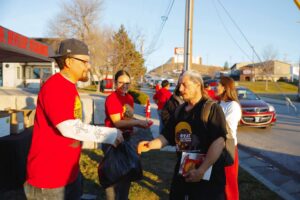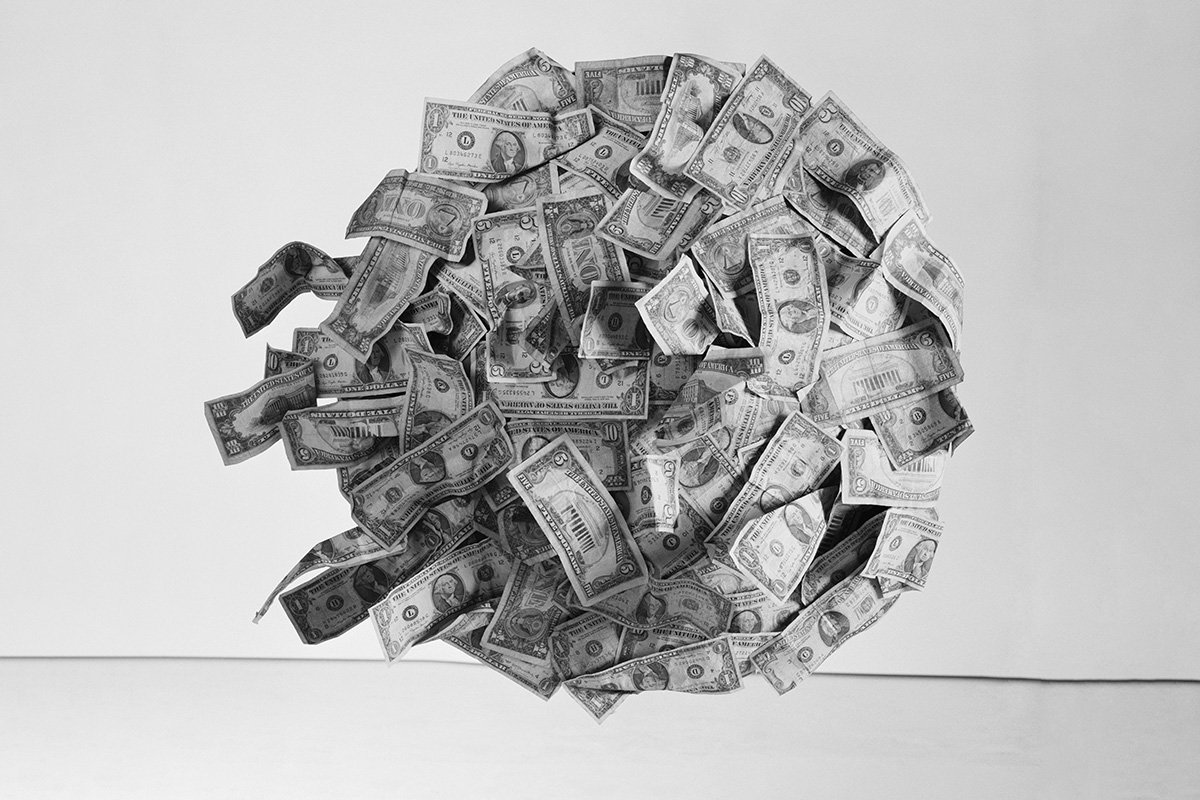
A new proposed ban on ski masks or balaclavas in public places, passed this December by Philadelphia’s City Council, has civil liberties advocates calling foul and accusing city officials of targeting Black people, and youth in particular, with the controversial legislation.
The ban has implications beyond Philadelphia, as cities around the country grapple with rising concerns—sometimes justified by the numbers, sometimes not—over urban crime on the one hand, and simmering tension over the role and scope of policing, especially in BIPOC communities, on the other.
The ban has implications beyond Philadelphia.
The Philadelphia ski mask ban, which at the time of press was still being reviewed by Philadelphia’s mayor, passed amid growing concern over violent crime—in particular, a spate of deadly gun violence—and would make wearing ski masks or similar face coverings in schools, parks, and on public transportation a civil offense subject to a $250 fine.
Proponents of the legislation drew a connection between the use of such masks and a rise in crime, including a record number of homicides in 2023 and the apparent inability of police to solve and make arrests in many of those crimes.
But opponents call the measure a subterfuge to allow police to target people of color, and youth especially, and as a means for law enforcement to stop—and potentially interrogate, frisk, or even arrest—those targets without due cause or a lawful basis for suspicion.
Opponents call the measure a subterfuge to allow police to target people of color.
“If someone’s walking around and is otherwise engaged in lawful activity, and they happen to be wearing a ski mask…they can be stopped, they can be fined $250,” ACLU-PA attorney Solomon F. Worlds told NPQ. “That’s unconstitutional. That flat out is unconstitutional.”
Legacy of “Stop and Frisk”
The move by the Philadelphia City Council to ban ski masks comes amid a new chapter of tension over policing nationwide, as some cities have seen rising trends in violent crime in recent years, especially throughout the COVID-19 pandemic. Politicians in cities like Philadelphia—especially those who identify as progressives—are, in many cases, finding themselves caught between calls from many sides to curb crime and, at the same time, calls to reign in police practices that result in racialized policing.
Philadelphia Mayor-elect Cherelle Parker, the first Black woman to serve as the city’s chief executive, is such a politician, having campaigned both as a progressive Democrat and as a tough (or tougher) on crime candidate in a city beleaguered by deadly shootings.
Parker has repeatedly suggested she is open to reconsidering the city’s policies around police stops—a position some have characterized as indicating a return to, or a bolstering of, “Stop and Frisk” practices that were curtailed, though not banned—by a 2011 settlement agreement with the ACLU-PA, which represented plaintiffs alleging that the stops were unconstitutional and that their implementation was racist.
A 2018 report by the ACLU-PA found that allegedly unconstitutional stops and frisks were still being carried out by Philadelphia police officers.
Parker has said she is calling instead for a return to “constitutional” police stop practices—though it is unclear whether the as-yet-unspecified details of such a policy would run afoul of the city’s consent decree regarding Stop and Frisk.
Meanwhile, Philadelphia officials are not the only ones navigating these murky waters.
Sign up for our free newsletters
Subscribe to NPQ's newsletters to have our top stories delivered directly to your inbox.
By signing up, you agree to our privacy policy and terms of use, and to receive messages from NPQ and our partners.
In New York City, where challenges to Stop and Frisk practices garnered national headlines, Mayor Eric Adams has reinstated the kind of street-level anti-crime units responsible for the unconstitutional practices that led to a ban of Stop and Frisk in New York.
A recent report by a court-appointed monitor found that illegal stops were still occurring in New York, the New York Times reported in June, noting:
Almost all of the stops made by the rebranded “neighborhood safety teams” analyzed in the report—97 percent—were of Black or Hispanic people, and 24 percent of the stops were unconstitutional. Of 230 car stops included in the sample, only two appear to have turned up weapons, the report said.
It’s against this backdrop of uncertainty over the legacy and future of Stop and Frisk that the Philadelphia ski mask ban has advanced.
“This ordinance would add another target on the backs of Black and Brown youth.”
Unintended Consequences
Critics of the Philadelphia ski mask ban say it will give police an excuse to unfairly and unconstitutionally target people of color, especially young men, with police stops. In other words, it is a return to the practices curtailed under the city’s settlement over Stop and Frisk. And that intent, Worlds told NPQ, has been, at times, explicit.
Worlds cites a Philadelphia City Council hearing on the proposed ski mask ban, at which a deputy commissioner told council members that the ordinance would allow police to more easily “put their hands” on targets otherwise doing nothing illegal.
“They’re doing this solely for the purpose of pretext” to stop people, said Worlds.
“And who will they pick if they’re going to use this to put their hands on people? We know the answer from history—we know the answer from current practice,” said Worlds. “It is blatant. To the extent it’s veiled, the veil is so thin that it evaporates in the sunlight.”
The ACLU-PA has spoken out against the proposed ordinance but has not yet taken legal action—though that could change.
Meanwhile, the ACLU-PA’s Worlds and other civil libertarians around the country are closely watching the events unfolding in Philadelphia. Should the ban on ski masks be approved, Worlds says, there is a good possibility other municipalities will pursue similar measures—to the detriment, Worlds noted, of the same populations of Black and Brown people who have already been disproportionately and illegally subjected to warrantless police stops. An Atlanta City Council member has already proposed a similar ban in that city.
“This ordinance would add another target on the backs of Black and Brown youth,” said Worlds. “If the city council truly wants to reduce crime, I’d suggest that they focus their attention, their money, and their time on things that actually are proven to reduce crime like housing assistance, food assistance, childcare, mental health resources, and educational resources.”











